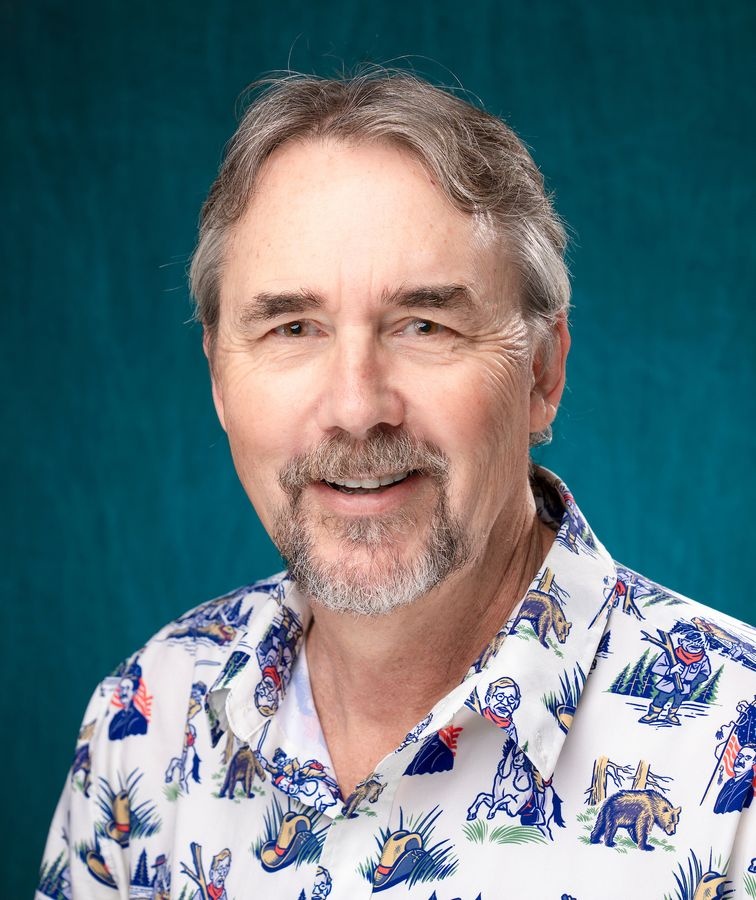David Gessner
Distinguished Professor
David Gessner is the author of fourteen books that blend a love of nature, humor, memoir, and environmentalism, including The Book of Flaco, the New York Times bestselling, All the Wild That Remains, Return of the Osprey, Sick of Nature and Leave It As It Is.
Gessner is the founder and Editor-in-Chief of the literary magazine, Ecotone. His magazine publications include pieces in the New York Times Magazine, Outside, Sierra, Audubon, Orion, and many other magazines, and his prizes include a Pushcart Prize and the John Burroughs Award for Best Nature Essay for his essay “Learning to Surf.” He has also won the Association for Study of Literature and the Environment’s award for best book of creative writing, and the Reed Award for Best Book on the Southern Environment for his book about the Gulf oil spill, The Tarball Chronicles. In 2017 he hosted the National Geographic Explorer show, "The Call of the Wild."
Education
Master of Arts, Creative Writing and English Literature, University of Colorado, Boulder, CO. 1998.
Bachelor of Arts, English and American Literature, Harvard College, Cambridge, MA, 1983.
Specialization in Teaching
I have taught classes in The Writing Life and the graphic novel and many courses on creative nonfiction. My recent teaching focus has been on environmental writing and the creation of an environmental writing track for both the MFA program and undergrads. Here is a description of the grad track:
Starting in Fall 2025, UNCW’s three-year MFA in Creative Writing program will offer students the ability to pursue an Environmental Writing Concentration, allowing writers of all genres to explore the influences of the natural world, the climate crisis, and the role of place in their writing. Nature writer David Gessner will lead this program of study, which includes a curriculum of environmental writing workshops with UNCW professors and visiting place-based authors, themed electives, opportunities to work with the award-winning place-based Ecotone Magazine, field studies, and instruction in creative research. Students will be provided with an immersive and generative experience, and will leave empowered with the skills and passion to become leaders in the field of environmental writing.
Research Interests
I have written extensively about landscapes and place, focusing on Cape Cod and the American West, and more recently on the Outer Banks and Wilmington.
Honors & Awards
• A Traveler’s Guide to the End of the World. Forword Indie Award. Bronze. Ecology and Environment. 2024.
• A Traveler’s Guide to the End of the World. NEA Big Read Selection. 2023.
* All the Wild That Remains: To the Best of Our Knowledge Top ten book, A New York Times Bestseller, An Amazon Best Nonfiction Book of 2015
• Best American Essays. Notable Essays 2012, 2009, 2007, 2005, 2004, 2000.
Recent Notables:
2016-The Prankster and the Professor, Tin House, #64
2017-The Taming of the Wild, The American Scholar, Summer
2019-Dangerous Ground, The American Scholar, Autumn
2021-Looking Back from the End of the World, The American Scholar, 89/3
2022-Out of Place, Ecotone, 31
• Best Book of Creative Writing for the years 2011-2012. The Tarball Chronicles, Association for the Study of Literature and the Environment.
• Reed Environmental Writing Award. The Tarball Chronicles was chosen as best book on the Southern environment 2012. Presented by the Southern Environmental Law Center.
• University of North Carolina Wilmington CAS Faculty Research Award in 2012. Award presented to a single faculty member for outstanding contributions in research over the previous eighteen months.
• Best American Nonrequired Reading 2008. “The Dreamer Did Not Exist” (originally published in The Oxford American) selected for Best American Nonrequired Reading 2008 (Houghton Mifflin, forthcoming October 2008).
• John Burroughs Award for Best Nature Essay. Accepted at American Museum of Natural History, NY, NY, on April 2, 2007
• Pushcart Prize 2006. Published in Pushcart Prize XXX 2006.

